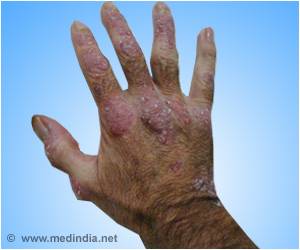Lead investigator Stefano Piaserico, MD, PhD, Dermatology Unit, Department of Medicine, University of Padova, explained, “Previous studies have shown that patients with severe psoriasis have an increased cardiovascular morbidity and mortality. However, there has been limited research on the specific mechanisms underlying this increased risk, particularly regarding coronary microvascular dysfunction”.
“We wanted to further investigate the prevalence of coronary microvascular dysfunction, as assessed by coronary flow reserve (CFR), in a large cohort of patients with severe psoriasis and its association with psoriasis severity and duration, as well as other patient characteristics. Patients with a reduced CFR underwent angio-CT to exclude stenosis of the coronary arteries, and no patients showed coronary artery disease. Therefore, all patients with an impaired CFR in our cohort were affected by coronary microvascular dysfunction.”
Severe Psoriasis & its Ripple Effects on Cardiovascular Risk
The study revealed that psoriasis severity, assessed by the Psoriasis Area Severity Index (PASI) score, and the duration of the disease were independently associated with lower CFR, along with the presence of psoriatic arthritis. Furthermore, results from the study showed that conventional cardiovascular risk factors, such as tobacco use, hyperlipidemia, and diabetes mellitus, were not independently associated with reduced CFR in patients with severe psoriasis.
Advertisement
The findings shed light on the potential mechanism by which psoriasis increases the risk of cardiovascular complications in affected individuals, in agreement with previous studies on chronic inflammatory conditions, such as rheumatoid arthritis, systemic lupus erythematosus and systemic sclerosis. The study supports the role of systemic inflammation in the development of coronary microvascular dysfunction.
Dr. Piaserico commented, “We should diagnose and actively search for microvascular dysfunction in patients with psoriasis, as this population is at particularly high risk. In keeping with this, some preliminary studies showed that coronary microvascular dysfunction is restored after treatment with biologics. Nevertheless, prospective studies are needed to confirm whether these findings translate into reductions in cardiovascular events.”
Reference :
- Coronary microvascular dysfunction in patients with psoriasis – (https://pubmed.ncbi.nlm.nih.gov/32419071/)
Source: Eurekalert



